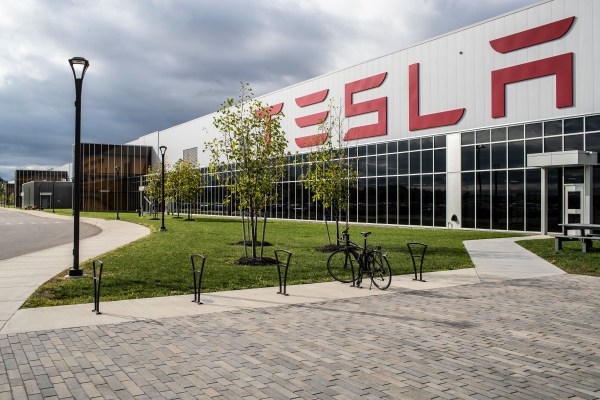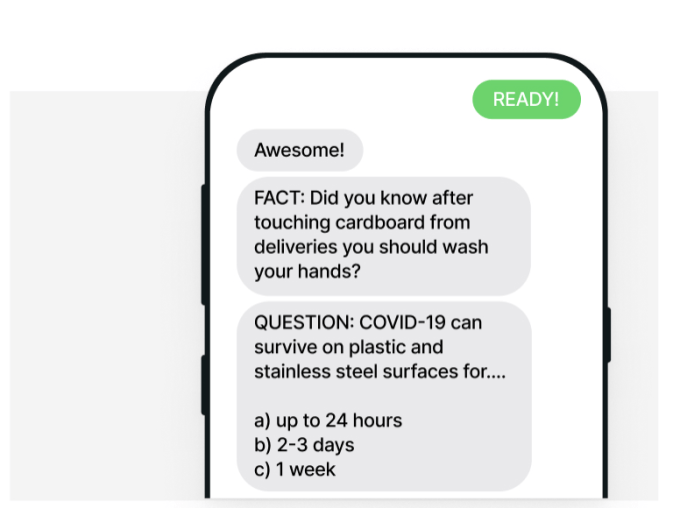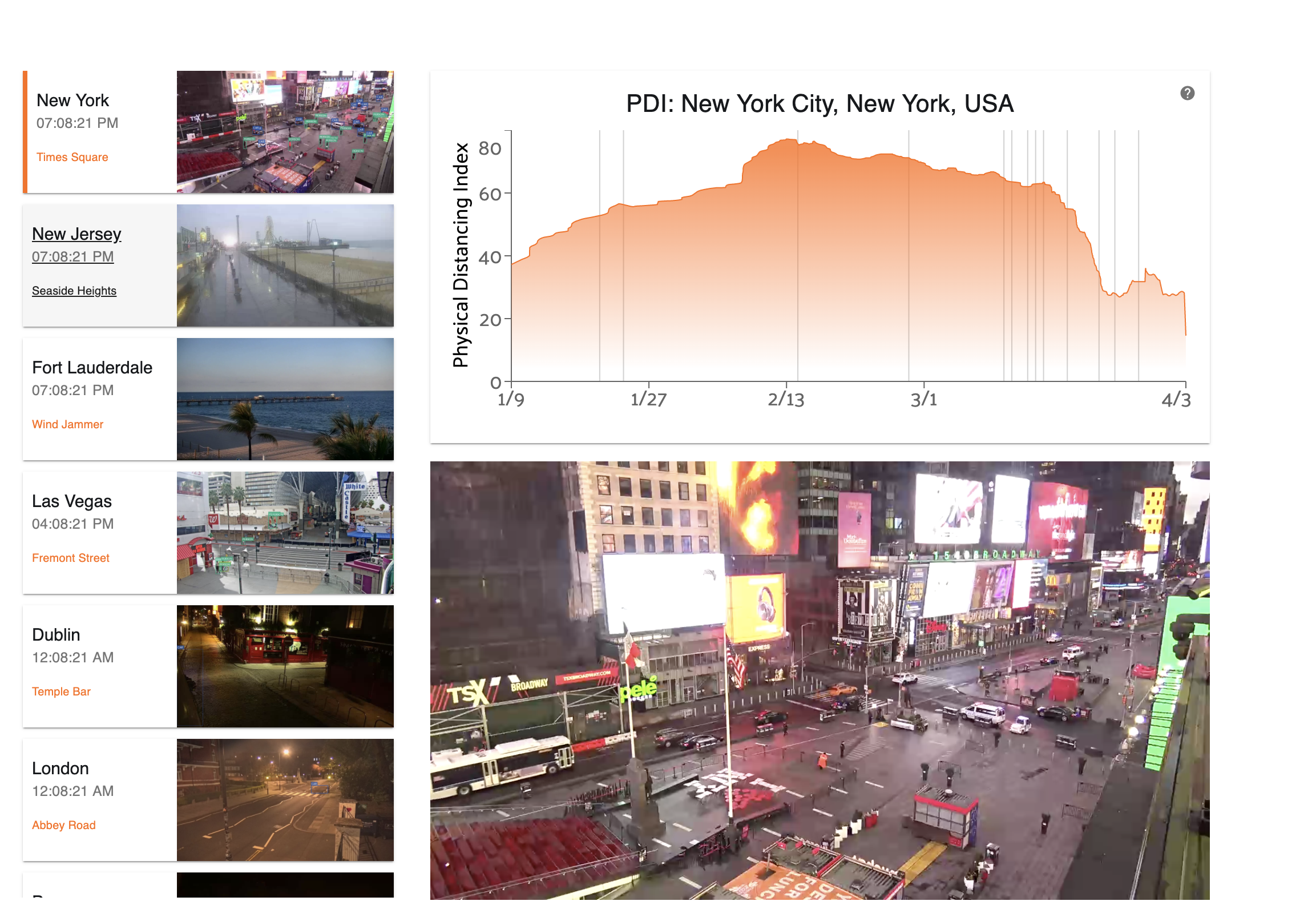Music
Trailers
DailyVideos
India
Pakistan
Afghanistan
Bangladesh
Srilanka
Nepal
Thailand
StockMarket
Business
Technology
Startup
Trending Videos
Coupons
Football
Search
Download App in Playstore
Download App
Best Collections
Technology
Best-known for phones and computers, Apple has now turned its hand to making face shields for medical workers.
Apple chief executive Tim Cook tweeted on Sunday that it has designed and is now making the protective gear.
The tech giant plans to make more than one million shields a week, which will be shipped first to US
- Details
- Category: Technology Today
Read more: The iShield: Apple to design and make medical gear
Write comment (99 Comments)On Friday, the Kenyan augmented reality game developer Internet of Elephants launched its latest game in partnership with the conservation science experts from the Borneo Nature Foundation, Goualougo Triangle Ape Foundation, Zoo Atlanta and Chester Zoo.
The new game, called &Wildeverse&, uses AR to create a virtual forest that players can explore to find certain animals — or clues to an animalwhereabouts.
Though the game was intended to be played outdoors, the COVID-19 crisis forced the team to pivot, creating an option that lets people move about virtually using in-game controls, or walk around in more confined spaces.
The game starts with a chat-based segment introducing players to the gameplay and setting up some context around the virtual environment players will be exploring. Its graphics aren&t focused on recreating a completely immersive jungle environment, but create an abstracted forest and canopy of trees which players explore. A timer keeps track of how long a player takes to complete a mission, which involve identifying certain animals or looking for traces of their presence in the AR-created forest.
Once a mission is complete, the player runs through a scripted interaction with an actual conservationist who helped the Internet of Elephants game developers come up with the concept for the game and provided research assistance and support for the actual animals represented in the gameplay.

Image courtesy of Internet of Elephants
The game can be played on any iOS or Android device that support ARKit or ARCore.
Challenges range from searching for the animals themselves or their footprints, food leftovers or poop to looking for illegal human activity and threats to the habitat of four real orangutans, chimpanzees, gorillas and gibbons.
To make the game, Internet of Elephants developers led by company founder Gautam Shah, actually went to the jungles of Borneo and Congo to speak with conservationists about their work and scout for wildlife to use in te game, the company said in a statement. The game developers tracked several families of monkeys
&Ape populations are being decimated across the world. Wildlife protection will only become a global priority if enough people take an interest. Conservationists on the ground are fighting an uphill battle with the support of only a handful of people,& said Shah in a statement. &We are on a mission to turn the 2 billion people playing games today, into wildlife lovers and supporters of conservation efforts.&
For Shah, the newest launch for Internet of Elephants continues the companymission, which began in 2015 when the American-born Shah forsook a career in consulting to launch his AR-based gaming company. Other members of the Internet of Elephants team have equally interesting stories, including product lead, Jake Manion, who had spent six years as the creative director for Aardman Animations, the Academy-award winning studio behind Wallace - Gromit and Shaun the Sheep.
Shah sees three primary conservation elements to the Wildeverse game. First, he says, it creates a link between players and the conservation societies that the company works with, giving people a better sense of what conservation organizations actually do. The game also forces players to confront issues like forest fires, illegal logging, poaching, and the challenges surrounding conservation work that are exacerbated by development and human consumption changing the composition of the jungles these animals call home. Finally therean educational element to the game.
&You really really do learn a lot of juicy stuff and we don&t shy away from getting technical,& says Shah. &All that collectively is about creating a connection between you sitting in St. Louis and someone in Borneo trying to study orangutans,&
Originally, the game was meant to be played outdoors, with a thirty-meter radius of space to get the full sense of the gameplay, but it can work in a small studio apartment in Los Angeles equally well, given the modifications the team made before the gamelaunch.
The text component of the game is informative and gives players a chance to learn about the foods orangutans eat, their habitat and their lives in the jungle. The script is slightly clunky, but not tiresome, and is based on conversations with the actual conservationists working in these different forests.
Ultimately Shah hopes to expand the number of habitats and the breadth of the game so players can explore different geographies and learn about endangered species on every continent.
Thereno monetization in the game yet and it will remain free-to-play, but Shah hopes to add some revenue-generating elements as development continues along with multi-player features, he said.
Ultimately, the game is about connecting and educating a new generation to the wonders of nature conservancy through the newest tech tools and gameplay.
&We want to make wildlife a positive, exciting topic of daily conversation for millions of people currently unconnected to conservation. We want to make Fio, Buka, Chilli and Aida celebrities, just like Kim Kardashian, Messi, and Donald Trump,& says Shah. &Peopleattention matters so much more than they think.&
- Details
- Category: Technology Today

As it mobilizes its supply chain, employees, and partners to provide personal protective equipment to medical workers and others working to stop the spread of the COVID-19 epidemic, Apple has sourced over 20 million face masks and is now building and shipping face shields, according to a statement from chief executive Tim Cook.
The company is working with governments around the world to distribute its supply of face masks to where itneeded most.
Meanwhile, the first delivery of the companyApple face shields went out to Kaiser hospital facilities in the Santa Clara valley earlier this week, according to Cook.
As Cook noted, the masks pack flat and ship 100 to a box. They can be assembled in less than two minutes and are fully adjustable. Cook said that the company would ship 1 million by the end of the week and will expect to ship an additional 1 million face shields weekly, with a goal to expand distribution beyond the U.S.
&For Apple this is a labor of love and gratitude and we will share more of our efforts over time,& Cook said.
Apple is joining an effort that several 3D printing startups and maker facilities have already spent time working on.
In Canada, INKSmith, a startup that was making design and tech tools accessible for kids, has now moved to making face shields and is hiring up to 100 new employees to meet demand.
&I think in the short term, we&re going to scale up to meet the needs of the province soon. After that, we&re going to meet the demands of Canada,& INKSmith CEO Jeremy Hedges told the Canadian news outletGlobal News.
3D-printing companies like Massachusetts-basedMarkforgedandFormlabs and BrooklynVoodoo Manufacturing are all making personal protective equipment like face shields in the US.
- Details
- Category: Technology Today
Times are exceptionally hard, especially for local restaurants, which were always in a precarious business even before the COVID-19 pandemic hit. But when times are hard, people pull together, right? Or at least they don&t take advantage of the suffering and desperate to exploit and profit from them. Right?
We&d all like to think so, but itnot always true. Case in point: GrubHub, which owns Seamless. Do the math, and you&ll see they are hurting, not helping, restaurants they pretend they&re trying to support.
GrubHub recently rolled out a &Supper for Support& promotion which is, to quote New Yorker writer Helen Rosner, &strongarming client restaurants into giving customers a discount, but charging restaurants their platform commission fee on the pre-discount total.& This follows a so-called, widely reviled &relief program& which only defers fees, without reducing them — unlike Doordash/Caviar — and requires those suckered into it to remain on GrubHub for a full year.
The fees charged by all meal delivery services are already extreme: &typically, 20 to 30 percent per order,& sometimes more. They were often ruinous to restaurants even in better times. GrubHubfees can easily total more than a third of the pre-tax total, by their own calculations.
Now they are taking advantage of the desperation caused by this massive global crisis, and exploiting the natural inclination of stressed, frightened and sleepless people to reach for any lifeline, no matter how catastrophic, in the hope of keeping their lights on and their people employed. GrubHub hypocritically claims to be &supporting the restaurants you love,& while actually trying to increase their own share of the take. This is despicable.
Infuriated, I reached out to the company for comment. No actual GrubHub employee could apparently be bothered to defend their actions, but a hired PR flack wrote back saying:
Grubhub is always looking for ways to increase sales for its independent restaurant partners, especially during these critical and challenging times. The optional Supper and Support effort does exactly that. In fact, local restaurants that chose to participate in the optional initiative have, on average, seen a more than 20 percent increase in the number of orders they have received as well as overall sales. We are proud of that and will continue to try to connect them with hungry diners and grow their businesses.
This enraged me even more. The GrubHub program is &optional& for your local restaurateurs, who are hanging on for dear life, in the same way that a lifeline laced with contact poison is &optional& when offered to a drowning man. It is &optional& with the unspoken subtext that if a restaurant doesn&t opt in, other restaurants might use it to siphon business from them. It is a program that monetizes others& suffering.
Does a 20% increase in orders sound good? Don&t be fooled. Do the math. Obviously &$10 off on orders over $30& incentivizes people to keep orders small, to maximize their discount percentages. Consider 100 $40 orders from which GrubHub would normally take 30%, or $12 from each. That would leave the restaurant with $2800. Already very painful, as you can see…
…but now take those 100 orders, and apply this promotion and its vaunted &more than 20% growth.& Heck, make it 30% growth. That means 130 orders, for which customers now pay only $30. But GrubHub still takes $12 each … so the restaurant now keeps only $2340, far less than they would have made without the promotion.
It gets even worse. The smaller the order size, the crueler the math gets for the restaurants. According to GrubHub2019 results, last year it had $5.9 billion in gross food sales, and 492,300 orders per day, meaning an average order price of … $32.83. Yes, thatright: Using the average order price from GrubHubown announced results, and a 30% commission rate, even with 50% order growth — double the &more than 20%& they trumpet — restaurants participating in this program will still lose huge. I invite you to do the math yourself.
The PR flack subsequently went on to proudly note a new addendum to the program, wherein &each restaurant will receive $250 from GrubHub to enable it to give $10 off any order of $30 or more.& This is even more maddening yet. $250 is much less than 1% of average restaurant monthly revenue. Weigh that against inflating GrubHubtake to as much as 45%, on $30 orders, through this predatory &offer the customer a $10 discount, but pay our commissions as if you hadn&t& promotion. You&ll quickly see that this $250 is an empty gesture which does not affect the numbers in any meaningful way.
There is a legitimate discussion to be had, sometimes, about the merits of pricing some items higher in times of high demand due to emergencies, so that their production and availability will increase. This is in no way part of that legitimate discussion. This is pure price gouging by GrubHub, and making it optional isn&t much of a fig leaf at a time when restaurants, like so many other establishments, have literally never been so needy and desperate.
People need to eat, and people want to support their local restaurants. The best way to do so is to buy directly from them. If you use a delivery service, ~20-30% of your money goes to the service rather than the restaurant. Many restaurants are now offering their own delivery, curbside pickup, etc., for the first time.
That said, delivery services remain the best or only option for some. But if you must use one, and if you have even a shred of basic human decency, don&t support predatory gouging that manifestly hurts the people it claims to help. Instead, from now on, avoid GrubHub and Seamless like — well — the plague.

- Details
- Category: Technology Today

Tesla is among a group of automakers retooling facilities to build ventilators for the Covid-19 crisis. In the following video, the company provides a behind-the-scene look at its ventilator design process.
Like Ford and General Motors, Tesla engineers are building its vent with parts for its vehicles. The reason is simple: car parts are available. Automotive companies obsessively stage parts for final assemble. Without doing so, having a shortage on, say, door handles can shut down a production line. In this thought, Tesla engineers say in this video they are trying to use as many car parts as possible.
For instance, Teslaventilator uses the Model 3 infotainment system to power a Model 3 vehicle computer, which in turn, controls an air flow manifold. A suspension air tank is used as a oxygen mixing chamber.Among other parts, the team is also employing a Model 3 touchscreen as a controller.
Tesla is one of several American automakers that pledged support to either donate supplies or offer resources to make more ventilators. Ford is working with GE to expand ventilator production while also using its own resources to build vents, respirators and face shields. GM intends to build ventilators at an Indiana-based car factory and recently announced it will soon be able to make 50,000 face masks a day. Tesla chief Elon Musk recently stated the car companyNew York factory will soon reopen to produce ventilators — perhaps even the vents shown in the video here.
- Details
- Category: Technology Today
Read more: Tesla shows how it’s building ventilators with car parts
Write comment (98 Comments)What do a heating filter company, a robotics startup and an architecture startup have in common? Usually, nothing. But right now, as COVID-19 sweeps the world and jeopardizes the lives of millions, companies are shifting operations to make N95 masks and ventilators for healthcare workers.
The innovation coming out of the startup world has been breathtaking, and, quite honestly, hard to keep up with. It feels like everyone in Silicon Valley and beyond is rising to the challenge, even if they don&t have pockets as deep as Amazon and Google.
So, for a drop of good news and hope at least once a week, we&re rounding up some of the startup efforts we&re seeing to combat the impact of COVID-19. This isn&t a place where we&ll be analyzing startups working on proposed cures (you can check out Darrelltireless work for that). Instead, we&ll look at the unique ways that companies are trying to make us feel less lonely and unpack how tech is answering the questions we&re starting to ask ourselves.
Stopcovid.co
The founder of Managed by Q, Dan Teran, has teamed up with training services startup ESLWorks to text message the latest coronavirus updates to front-line workers in real time. The Stopcovid.co initiative targets workers who may not have the support of a big organization but still need to follow the health recommendations of the CDC. The messages are sent via WhatsApp and text message so users who are not digitally apt can access the information with ease. When I caught up with Teran, he said that, &I don&t want to characterize the population we&re trying to reach, but if I were a delivery driver for 12 to 14 hours a day trying to put food on the table, I&m probably not up to date on the virus and how it spreads.&
 Cornell Tech Clinic
Cornell Tech Clinic
Cornell Tech Clinic is helping domestic violence survivors get support during a time when individuals are forced to stay inside and rely on virtual communities. The clinic launched a remote program to give advice to abuse survivors who are worried that their partners are using technology to abuse them, whether that is cyberstalking or monitoring every call or chat. The new program will include how to best get in touch with a case worker remotely, how-to guides for self help and a research study on how to aid those experiencing tech abuse.
S&More and Hopeline
Dating app S&More, which helps users connect beyond physical appearance, is teaming up with a mental health crisis prevention hotline Hopeline to raise money. The campaign, called &social distancing is not emotional distancing,& will make a $1 donation to Hopeline for every person who starts a conversation on S&More.
Procore construction management
Procore, a construction management software developer, is giving customers free access to its software for projects being built for COVID-19-related emergency relief products. The hope is to support the construction industry in flipping hotels, convention centers and more into emergency medical facilities, sans the extra money for software.
Wize tutoring platform
Wize, piggybacking off of a slew of edtech companies offering freebies, is making its tutoring platform for free until the end of the school year. Students who have felt the impact of their school or university shutting down can access a library of exam or test preparation materials.
Springboard career coaching
Edtech startup Springboard is offering a weekly career coaching seminar for free to help job seekers prepare for a &post-pandemic economy.& The AMA will be held every Wednesday, starting April 1 from 12:30 to 1:30pm PST.
Voxel51
Voxel51 is using live, pre-existing cameras to track how preventative measures are being followed around the world. It uses artificial intelligence to give a window into social activity in popular public spaces, and &scores& areas based on social behaviors. Ita way to track how much people are listening to public health recommendations.

Tech Manitoba and Computers for Schools
When Tech Manitoba, a local nonprofit in Canada, had only eight refurbished computers for the 150 families in need, it knew it needed a bigger solution. Tech Manitoba teamed up with Computers for Schools and is now gifting 200 refurbished, sanitized computers to those in need.
One Planet prayer chain
One Planet, a venture firm, started a global prayer chain. The site, LightUpTheWorld.org, lets people from all over the world post prayers and reflections focused on health and optimism. When you go to the site, the prayer you see is being written and posted in real time by the author.
Stilt low-interest loan
Stilt is a tech startup that claims it gives low-interest loans to immigrants to help them build credit based on requirements beyond Social Security number and credit history. It is offering its customers who are hourly workers, and make less than $45,000 a year, an immediate freeze on interest for payments and a forbearance — which is a delay on foreclosure — for two months.

- Details
- Category: Technology Today
Page 1035 of 1420

 13
13





